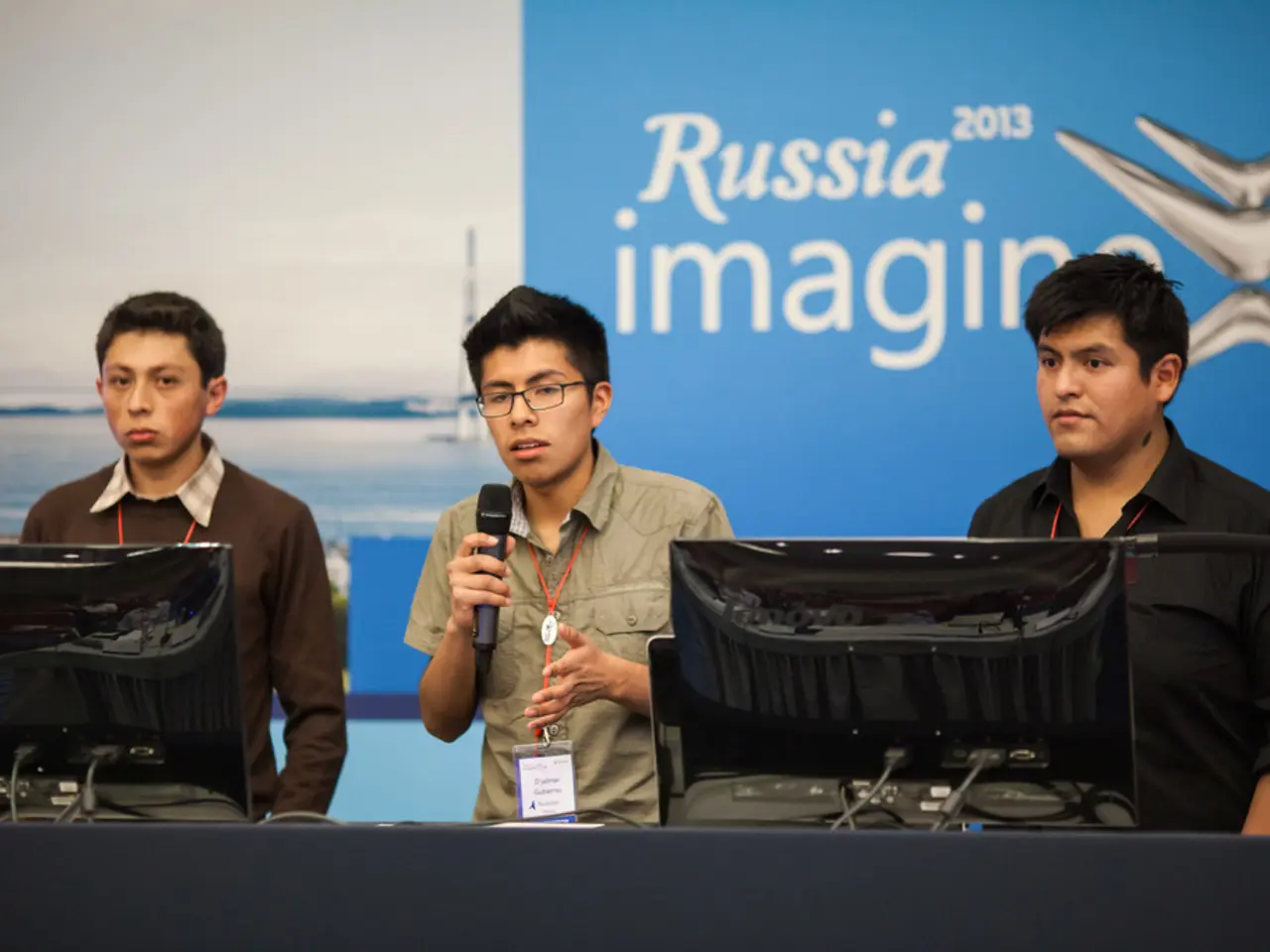Investigation Launched on Intel Board Regarding CEO Lip-Bu Tan's Previous Ties to China - National Security Worries Emerge during Cadence Crisis
In a recent development, U.S. Senator Tom Cotton is scrutinising Intel CEO Lip-Bu Tan's past business ties to Chinese technology firms due to national security concerns related to Intel's role in American defense-linked supply chains.
The senator has sent a letter to Intel's board chair questioning whether Tan had adequately disclosed and divested from his investments in over 600 Chinese companies, including some linked to the Chinese military and the Communist Party, before assuming leadership of Intel. This scrutiny arises amidst Intel's involvement in the federal Secure Enclave initiative, which aims to secure microelectronics for U.S. defense, and Intel's $3 billion contract with the Department of Defense.
Key points of Cotton's concerns include Tan's investments of at least $200 million through his venture firm Walden International in numerous Chinese tech firms, some with ties to the People’s Liberation Army and state-linked companies such as China Electronics Corporation. The senator also questions whether Intel’s board vetted and required Tan to divest from these firms and if they were aware of legal issues during Tan's tenure as CEO of Cadence Design Systems, where the company pleaded guilty and paid over $140 million for selling chip-design tools to a Chinese military university involved in nuclear simulation.
Potential risks that Tan’s past business ties and the Cadence scandal pose to Intel’s obligations under sensitive U.S. defense programs like Secure Enclave, which involve federal funding and require secure supply chains, are a major concern.
The scrutiny is happening at a critical time for Intel, which is trying to regain competitiveness amid challenges including revenue declines, job cuts, and geopolitical trade restrictions prompted by U.S. tariffs on computer chips under the "America First" agenda. Senator Cotton’s inquiry reflects broader concerns about foreign influence and technology transfers in critical semiconductor supply chains essential to national security.
Intel, which is involved in the federal Secure Enclave initiative and holds a roughly $3 billion contract with the Department of Defense, is also facing competition from TSMC for foundry relevance. The outcome of this inquiry could shape how talent with international exposure is vetted at U.S. tech companies with defense roles.
This strategic pivot is aimed at wooing major clients like Apple and Nvidia. Lip-Bu Tan has been appointed as Intel's CEO, and the scrutiny of his past business ties could potentially affect multiple key industry leaders. The CEO and Intel have committed to national security and stated they will cooperate with the board inquiry.
References: [1] Reuters (2022). Intel CEO Lip-Bu Tan faces U.S. Senate scrutiny over ties to Chinese tech firms. [online] Available at: https://www.reuters.com/technology/intel-ceo-lip-bu-tan-faces-us-senate-scrutiny-over-ties-chinese-tech-firms-2022-04-28/ [2] Reuters (2022). Intel CEO Lip-Bu Tan's venture firm invested in over 600 Chinese companies, Reuters finds. [online] Available at: https://www.reuters.com/business/ipc/intel-ceo-lip-bu-tans-venture-firm-invested-over-600-chinese-companies-reuters-finds-2022-04-28/ [3] Reuters (2022). Intel CEO Lip-Bu Tan's venture firm invested in over 600 Chinese companies, Reuters finds. [online] Available at: https://www.reuters.com/business/ipc/intel-ceo-lip-bu-tans-venture-firm-invested-over-600-chinese-companies-reuters-finds-2022-04-28/ [4] CNBC (2022). Intel CEO Lip-Bu Tan faces Senate scrutiny over ties to Chinese tech firms. [online] Available at: https://www.cnbc.com/2022/04/28/intel-ceo-lip-bu-tan-faces-senate-scrutiny-over-ties-to-chinese-tech-firms.html [5] The Hill (2022). Intel CEO faces scrutiny over ties to Chinese tech firms. [online] Available at: https://thehill.com/policy/technology/3515883-intel-ceo-faces-scrutiny-over-ties-to-chinese-tech-firms/
- The scrutiny of Intel CEO Lip-Bu Tan's past business ties to Chinese technology firms, led by U.S. Senator Tom Cotton, is a reflection of broader concerns about foreign influence and technology transfers in critical semiconductor supply chains essential to national security, as addressed in news articles from Reuters, CNBC, and The Hill.
- Senator Cotton has questioned whether Tan had adequately disclosed and divested from his investments in over 600 Chinese companies, including some linked to the Chinese military and the Communist Party, before assuming leadership of Intel, as reported by Reuters.
- The potential risks that Tan’s past business ties and previous legal issues at Cadence Design Systems, where the company pleaded guilty and paid over $140 million, pose to Intel’s obligations under sensitive U.S. defense programs like Secure Enclave are a major concern, given Intel's role in American defense-linked supply chains and its $3 billion contract with the Department of Defense, as stated in various general news sources.




